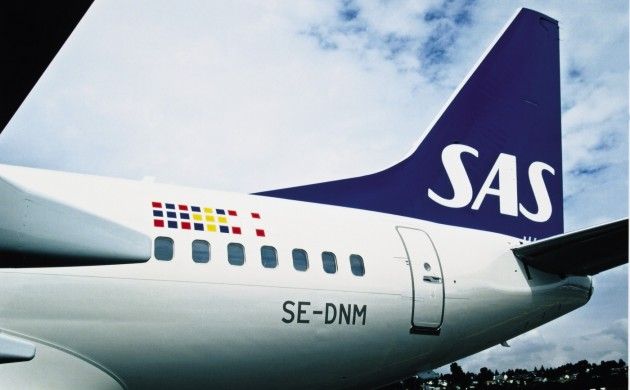After nearly ten hours of negotiations yesterday, SAS and its pilots are today back at the bargaining table.
Following yesterday’s talks, Roger Klokset, the chair of the SAS Pilot Group, told TV2 he was “more or less optimistic”.
This morning, when asked whether an agreement will be reached today, he replied: “I do not know. We will see. I hope so.”
However, as SAS suffers devastating financial losses – with the company saying itself that its very survival is at stake – there are signs an agreement is close.
One billion in losses
The pilots, represented by the SAS Pilot Group and Dansk Metal, have been negotiating with SAS’s management for several months. After several rounds of failed talks, the strike began on July 4.
In the ten days since, it has cost the company nearly 1 billion kroner, according to an official statement from SAS. This has equated to losses between 70 and 90 million kroner every day.
The strike, says the statement, “threatens the company’s ability to ultimately successfully raise critically needed near-term and long-term capital to fund the company’s successful reorganisation”.
“Ultimately, the survival of the company at stake,” said Anko van der Werff, the president and CEO.
Mechanics back to work
As negotiations continued this morning, some 200 aircraft mechanics at SAS returned to work – they had previously joined the pilots’ strike in a show of sympathy.
“It is simply to ensure that when the strike has ended, they can get the Danes out and fly and get them home again,” Keld Bækkelund, the federal secretary of Dansk Metal, told TV2.
Bækkelund did not say whether this means the parties are approaching an agreement.
However, Jacob Pedersen, the head of equity analysis at Sydbank, told TV2 the suspension of the mechanics’ strike likely indicates that an agreement is close.
Danes undecided
A new survey conducted by Megafon shows that Danes are unsure whose side to take in the dispute.
Some 38 percent backed the pilots, 21 percent favoured the SAS management, and 27 percent supported neither.
Jacob Holst Mouritzen, a branding expert, has told TV2 that the pilots may be receiving less public support than is typical for workers in a labour dispute because of the prestige and income associated with their profession.
Also, with 2,550 strike-related cancellations affecting over 270,000 passengers, a fair number of Danes are frustrated that the strike has disrupted their holiday plans.
Wherever their support lies, Danes are hesitant to give SAS their business. According to the survey, 81 percent of Danes do not want to book tickets with the airline this summer.














